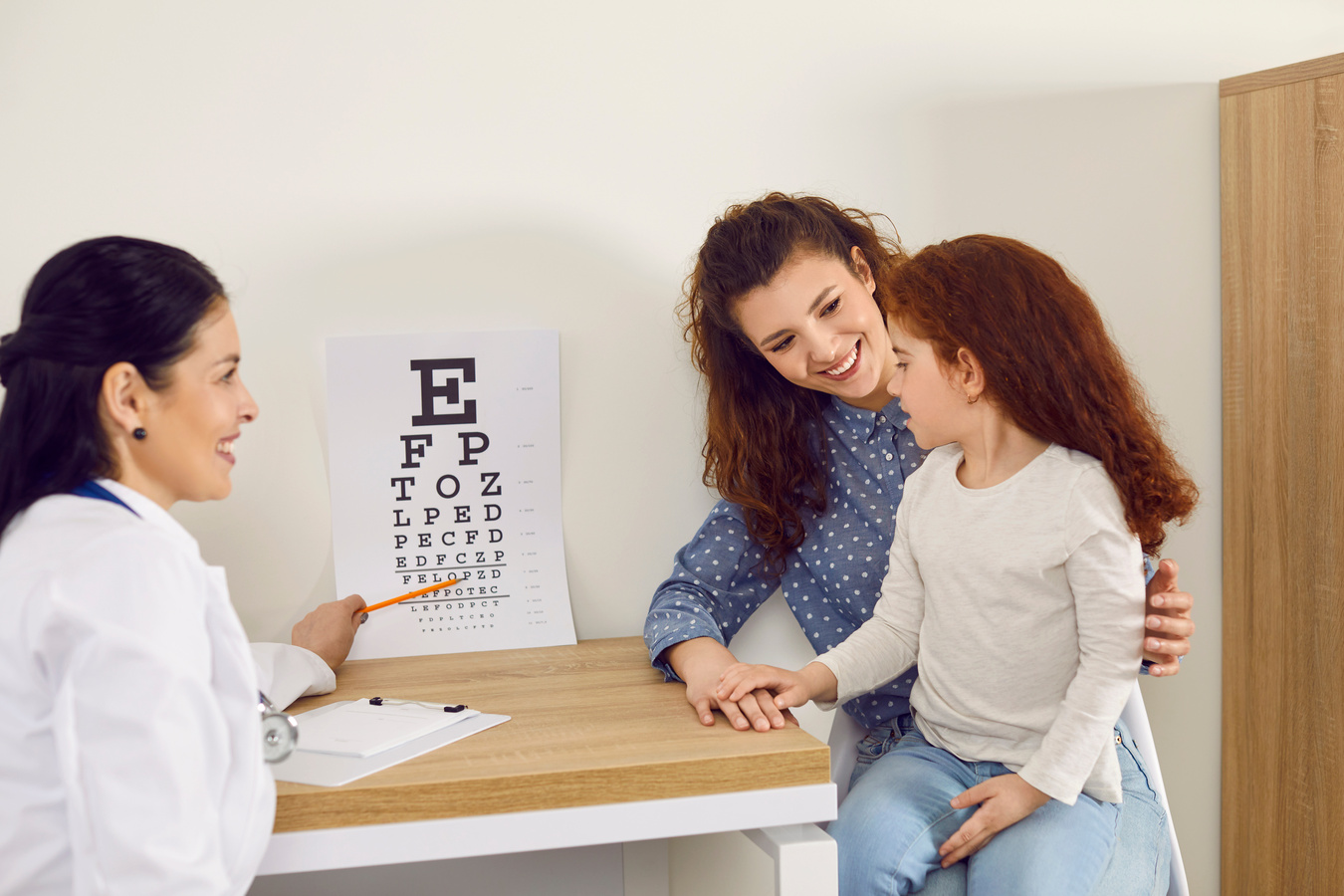
Protecting Your Eyes in Winter: A Comprehensive Guide
2 Winter brings chilly temperatures, snowy landscapes, and cozy evenings by the fireplace. While many people take measures to protect their skin and bundle up in warm clothing, it’s crucial not to overlook the well-being of your eyes during the winter months. Cold and dry air, harsh winds, and increased indoor heating can pose challenges to eye health. In this article, we will explore effective strategies for protecting your eyes during the winter season.
Common Winter Eye Issues
Winter isn’t just about the magic of snowflakes; it comes with its set of eye problems. The combination of chilly winds and indoor heating systems can cause dry eyes, irritation, and redness. Understanding these common issues is the first step towards effective eye care in winter.
UV Rays and Winter Sun
Contrary to popular belief, UV rays don’t take a vacation in winter. The winter sun can be deceiving, and prolonged exposure without protection can lead to serious eye conditions.
Things You Should Consider to Protect Your Eyes In Winters
- Moisturize Your Eyes
Dry air is a common winter woe, both indoors and outdoors. Indoor heating systems can reduce humidity, leading to dry eyes. Combat this by using artificial tears or lubricating eye drops to keep your eyes moist. Remember to blink regularly, especially when spending extended periods in front of screens.
- Wear Sunglasses
Snow can act as a powerful reflector of sunlight, intensifying UV rays. Protect your eyes from harmful ultraviolet (UV) radiation by wearing sunglasses with UV protection. This not only shields your eyes from the sun but also acts as a barrier against the glare caused by snow and ice.
- Stay Hydrated
Hydration is essential for overall health, including eye health. Cold weather can decrease your body’s natural urge to drink water, leading to dehydration. Proper hydration helps maintain the tear film on your eyes, preventing dryness and discomfort.
- Use Protective Eyewear
When engaging in winter sports or activities like skiing, snowboarding, or snowmobiling, wearing protective eyewear is crucial. Goggles or glasses designed for these activities can shield your eyes from wind, debris, and harmful UV rays. Additionally, they provide a barrier against the drying effects of cold air.
- Adjust Indoor Humidity
As indoor heating systems can reduce humidity levels, consider using a humidifier to add moisture to the air. This can prevent your eyes from becoming overly dry and irritated. Aim for a humidity level between 30% and 50% to maintain a comfortable environment for your eyes.
- Practice the 20-20-20 Rule
Spending extended periods staring at screens can contribute to eye strain. Follow the 20-20-20 rule: every 20 minutes, take a 20-second break and look at something 20 feet away. This simple practice helps reduce eye strain and fatigue.
- Protective Headgear
In extremely cold and windy conditions, consider wearing a hat or a hood to protect your eyes from the biting cold and prevent wind from drying out your eyes. This is especially important for individuals with sensitive eyes or those prone to dryness.
- Nutrition for Eye Health
Maintain a diet rich in vitamins and nutrients that promote eye health. Include foods high in omega-3 fatty acids, vitamin A, and antioxidants. These can contribute to the overall well-being of your eyes and help prevent conditions such as dry eyes and macular degeneration.
- Avoid Rubbing Your Eyes
Despite the discomfort, avoid rubbing your eyes, as this can exacerbate dryness and irritation. Instead, use artificial tears or consult with an eye care professional for appropriate remedies.
Choosing the Right Eyewear
Choosing the right eyewear during winter is important for both style and protection against the elements. Here are some tips to help you make the right choice:
- UV Protection: Even in winter, the sun’s rays can be harsh, and the reflection off snow can intensify UV exposure. Look for sunglasses with UV protection to shield your eyes from harmful ultraviolet rays.
- Polarized Lenses: Consider polarized lenses to reduce glare from snow and ice. This is especially beneficial when driving or participating in winter sports, as it enhances visibility and reduces eye strain.
- Frame Style: Opt for frames that provide good coverage to shield your eyes from wind and cold air. Wraparound styles or larger frames can help protect your eyes from the elements.
- Lens Color: Choose lens colors that enhance contrast and visibility in low-light conditions. Amber, rose, or yellow-tinted lenses can be effective in cloudy or overcast winter days.
- Anti-Fog Coating: Cold temperatures can lead to fogging on your lenses, especially when transitioning from outdoor cold to indoor warmth. Look for eyewear with anti-fog coatings to maintain clear vision.
- Prescription Glasses: If you wear prescription glasses, consider getting anti-reflective coatings on your lenses. This can help reduce glare from snow and artificial lights.
- Helmet Compatibility: If you engage in winter sports like skiing or snowboarding, ensure that your eyewear is compatible with your helmet. Some goggles are specifically designed for this purpose, providing a snug fit with a helmet.
- Scratch Resistance: Winter activities often involve exposure to rough surfaces like snow and ice. Choose eyewear with scratch-resistant coatings to keep your lenses in good condition.
- Adjustable Features: Look for eyewear with adjustable features such as nose pads and temple tips. This ensures a comfortable and secure fit, especially when wearing them for extended periods in cold weather.
- Fashion and Style: While functionality is key, don’t forget about style. Choose eyewear that complements your winter wardrobe and personal style.
By considering these factors, you can select eyewear that not only protects your eyes from the winter elements but also enhances your overall winter look. Whether you’re navigating snowy streets or hitting the slopes, the right eyewear can make a significant difference in your comfort and vision.
Avoiding Eye Strain
As we spend more time indoors during the winter, our screen time tends to increase, leading to digital eye strain. Uncover effective practices to reduce eye strain and keep your vision clear and comfortable, even in the era of constant digital engagement.
Home Remedies for Eye Comfort
Sometimes, a little home remedy can go a long way in soothing winter eyes. Explore natural solutions like warm compresses and eye massages that provide comfort and relief to your eyes.
Certainly! Here are some home remedies to help soothe and provide comfort to your eyes during the winter:
- Warm Compress
– Soak a clean cloth in warm water.
– Gently place it over your closed eyelids for about 5-10 minutes.
– This can help alleviate dryness and relieve eye strain.
- Blinking Exercises
– Remember to blink regularly, especially when working on screens.
– Blinking helps in spreading moisture across the surface of the eyes.
- Hydration
– Stay well-hydrated by drinking plenty of water.
– Proper hydration helps maintain the moisture levels in your eyes.
- Humidifier
– Use a humidifier in your home or office to add moisture to the air.
– This can prevent the air from becoming too dry, which can irritate your eyes.
- Omega-3 Fatty Acids
– Consume foods rich in omega-3 fatty acids, like fish, flaxseeds, and walnuts.
– These can contribute to eye health and reduce dryness.
- Cold Compress for Puffiness
– If your eyes are puffy, you can use a cold compress.
– Place a clean cloth soaked in cold water over closed eyelids for a few minutes.
- Aloe Vera Gel
– Apply a small amount of pure aloe vera gel around the eyes.
– Aloe vera has moisturizing properties that can help with dryness.
- Adjust Screen Settings
– If you spend a lot of time on digital screens, adjust the brightness and contrast to reduce eye strain.
- Protective Eyewear
– Wear sunglasses that block out UV rays to protect your eyes from harsh winter sunlight and wind.
- Limit Heater Use
– Heaters can dry out the air. Try not to sit too close to heaters and use a humidifier to add moisture back into the air.
If you experience persistent discomfort or if your symptoms worsen, it’s advisable to consult with an eye care professional for personalized advice.
Balancing Style and Protection
Who says protective eyewear can’t be stylish? Discover fashionable options that not only shield your eyes but also complement your winter wardrobe. Striking the right balance between style and protection is key.
Educating Others
Knowledge is power, and spreading awareness about winter eye protection is a responsibility we all share. Find out how you can play a role in educating your community about the importance of safeguarding their eyes during the winter season.
In the chill of winter, don’t let your eyes bear the brunt of the cold. By adopting these practical tips and making eye protection a priority, you can ensure your vision remains clear and comfortable throughout the season. Remember, a little care goes a long way in preserving the windows to your soul.
Conclusion
The Eye Health Group suggests that protecting your eyes during the winter involves a combination of lifestyle adjustments and proactive measures. By staying mindful of the unique challenges posed by cold weather, you can ensure that your eyes remain healthy, comfortable, and free from winter-related issues. Incorporate these tips into your daily routine to safeguard your eyes and enjoy the winter season with clarity and comfort.


